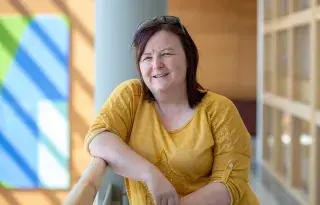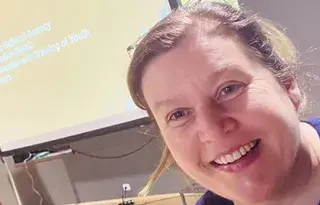BA in Community Youth Work
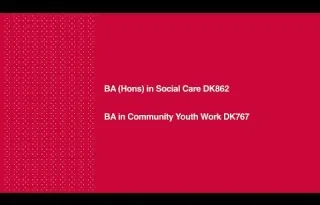
Search to find a different course
Course Overview
This course supports the development of youth work practitioners as professionals, with an enhanced understanding of societal impacts on young people. Emphasis on human rights, social justice, and equality are central themes within the modules. Combined with developing desired skill sets such as IT, programme development, and understanding sociology, psychology, and relationships, this course aims to educate youth workers with critical, essential skills for the youth work setting.
Youth Work has a keen sense of working with young people on their developmental, recreational, social, and educational attainment in a non-formal setting complementary to other educational and training programmes. Students develop empathetic skills in sociology, psychology and community development whilst experiencing two different forms of work placement in community settings.
What makes this course different
Work with Young People
The programme is specific to working with young people aged from 10-25 years in youth work settings.
Great Employment Prospects
85% of Community Youth Work graduates are in employment after 6 months of graduating, all employed in childcare and youth services roles (DkIT/HEA Graduate Survey)
Two Industry Practice Placements
Students undertake 2 supervised practice placements; one in Year 2 and one in Year 3.
Understanding the Industry
Youth Work is a rewarding profession, where practitioners work closely with young people between 10 – 25 years, in youth work settings. Youth workers enhance the personal and social development of young people and work with young people across a range of spaces where the relationship is critical and central to the work. Youth Work allows work to happen with young people in an informal setting that complements their formal education and should assist a young person to navigate their way in the world and allow for supports in the ‘growing up’ stages.
Career Opportunities
Future Careers:
- Youth Worker
- Garda Youth Diversion Project Worker
- Programme Co-Ordinator
- Outreach Worker
- Youth Advocacy
- School Completion Project Worker
In these areas:
- Youth Work
- Education
- Health
- Community
- Government
Graduates work at
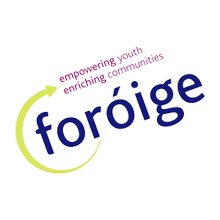

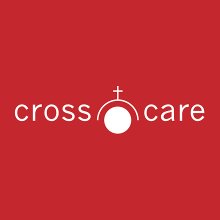
Course Delivery and Modules
During this programme, course content will be delivered via a series of Lectures, Tutorials, Group Work, Online learning, Field Trips, Guest Speakers and Issue based workshops.
Work placement
Students undertake 2 supervised practice placements; one in Year 2 and one in Year 3.
Education Progression
On completion of this course, students will be eligible to progress onto the Level 8 Add-On course: BA (Hons) in Youth Work Add-On. (This will be subject to student numbers. Where places are limited, offers will be linked to the final GPA achieved.) The Level 8 BA (Hons) in Youth Work Add-On is endorsed by NSETS.
BA (Hons) in Youth Work — NSETS Endorsed
Fees and Funding
Please find information on fees and funding here: www.dkit.ie/fees
Entry requirements
In addition to the standard entry requirements below, candidates must attend an interview.
Please note there is no Maths entry requirement for this course.
- Standard Requirements for Leaving Certificate Applicants
- Standard Requirements for UK/NI Applicants
- Standard Requirements for QQI-Further Education Applicants
Recent CAO points
How to apply
Apply on CAO
All standard entry first-year applicants must apply for entry through the CAO. See Important application dates for CAO and information for specific applicant types below:
Advanced Entry & Transfer Applications
Advanced Entry is for applicants who have previous educational achievements and/or work experience and want to be considered for direct entry into year 2, 3, or 4 of a course. This includes students looking to transfer to DkIT from another Higher Education provider.
International Application (non-EU)
International Applicants (not from or living in the EU) can apply through an agent or directly to DkIT to study this course.
Ask us a Question
If you have a question about the BA in Community Youth Work please ask it below and we will get back to you.
Breda Prunty
Disclaimer: All module titles are subject to change and for indicative purposes only. All courses are delivered subject to demand and timetables are subject to change. Elective Module options will only run subject to student numbers. The relevant Department will determine the viability of each elective module option proceeding depending on the number of students who choose that option. Students will be offered alternative elective modules on their programme should their preferred elective option not be proceeding. Award Options for Common Entry Programmes: The relevant Department will determine the viability of each award option proceeding depending on the number of students who choose either option. If the numbers for one of the Award options exceed available places, students for this option will be selected based on Academic Merit (highest grades).
